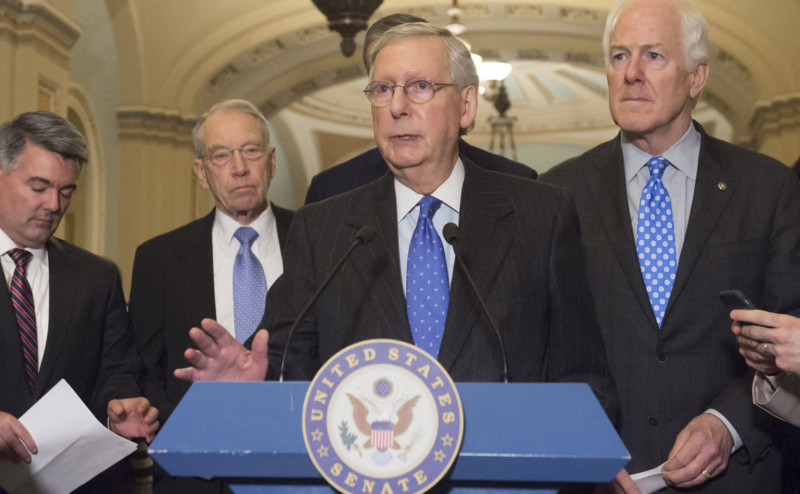The US Senate descended into acrimonious bickering Tuesday as Republicans and Democrats clashed over President Donald Trump’s Supreme Court pick, with no signs that a potentially damaging showdown will be averted.
The Senate began formal debate on Judge Neil Gorsuch, as opposition Democrats insisted they have the necessary votes to defeat his nomination through use of a filibuster — a procedure that essentially prevents a vote with endless debate.
Sixty votes are needed to overcome a filibuster in the 100-seat Senate. Republicans currently hold 52 Senate seats. The vote to end an all-but-certain filibuster is due Thursday, with a confirmation vote set for Friday, after which Congress heads home for a two-week recess.
Should Gorsuch not gather the needed 60 votes, Republican leaders are ready to employ the “nuclear option,” changing Senate rules in order to advance the nomination — and all subsequent Supreme Court nominees — by a simple majority vote.
Senate Majority Leader Mitch McConnell warned that the Democrats’ filibuster threat could do something “truly detrimental to this body and to our country.” Democrats, he criticized on the Senate floor, were “hurtling toward the abyss this time, and trying to take the Senate with them. They need to reconsider.”
To overcome the filibuster, Republicans need eight Democrats to back Gorsuch, named by Trump to fill the seat of conservative justice Antonin Scalia who died in February 2016. To date, just four Democrats have announced their support.
“They’re pretty much dug in,” Republican Senator John Thune said of Democratic colleagues. McConnell will need to put the rules change to a majority vote. He said he has enough votes from his party for the change to succeed, but some Republicans have bristled.
Senator John McCain fumed to reporters that whoever thought it was a good idea to blow up the longstanding Senate rules “is a stupid idiot.” Democrat Richard Blumenthal warned that the nuclear option will only lead to fewer consensus Supreme Court nominees and more far-right or far-left justices.
“This fallout will be dangerously and perhaps disastrously radioactive for the Senate in years to come,” Blumenthal said. But there were no apparent signs of a deal to avoid the filibuster, or the nuclear option.
Top Democrat Chuck Schumer pointed to McConnell’s refusal to hold hearings or a vote on then-president Barack Obama’s Supreme Court nominee Merrick Garland, who had been tapped to replace Scalia.
When Trump won the presidential election in November, the Garland nomination was dead, infuriating Democrats.
“We lost one, they lost one,” Schumer said. “No one is forcing Senator McConnell to change the rules,” he added from the Senate floor. “He’s doing it at his own volition.”
Guardian
This page has been viewed 277 times


























